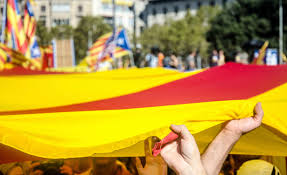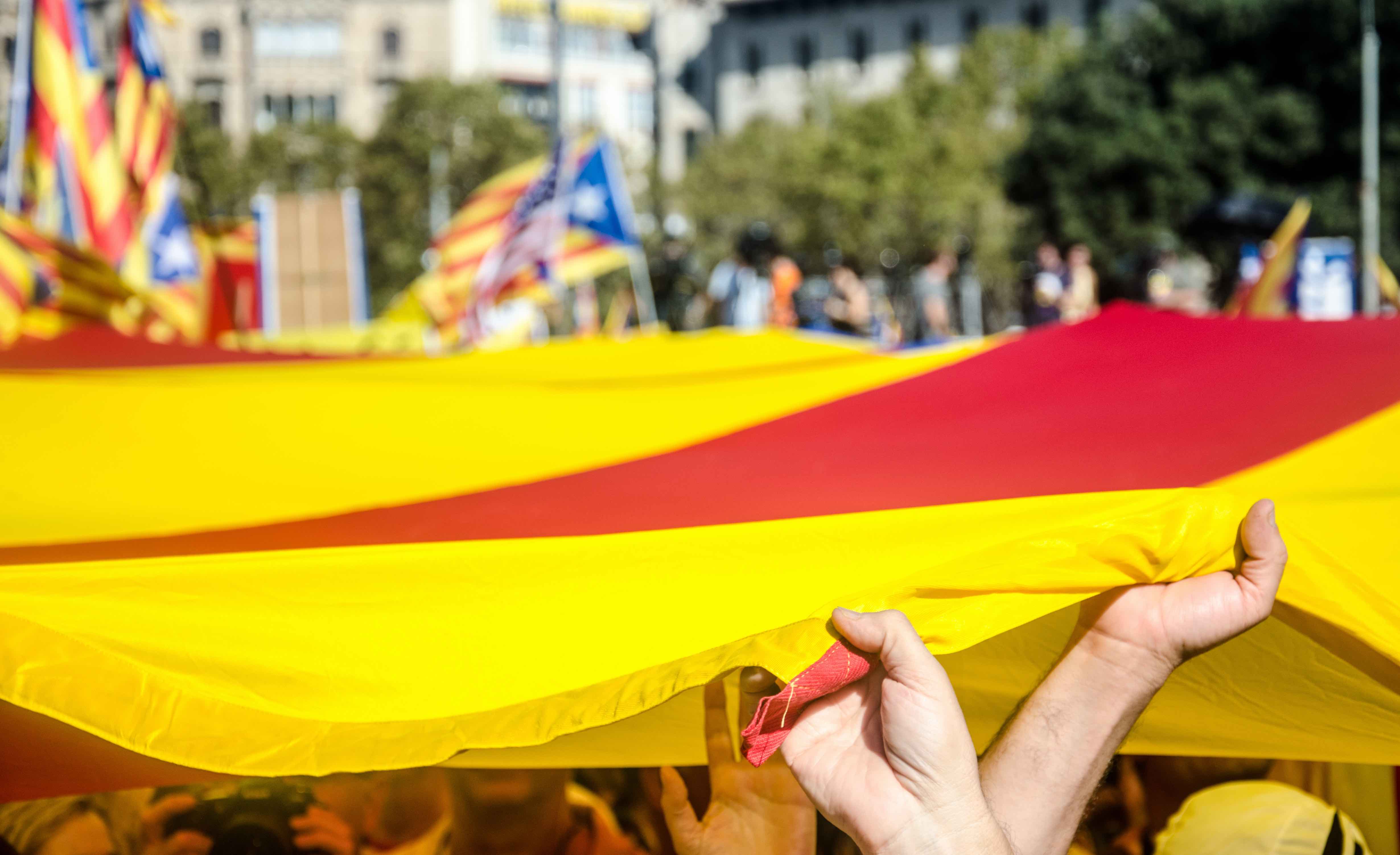
Jordi Muñoz
In his article published in Eurozine on 25 September, Daniel Gascón, from Eurozine partner journal Letras Libres, described the proposed independence referendum in Catalonia on 1 October as a ‘postmodern coup’. Here, political scientist Jordi Muñoz, writing for Eurozine partner journal L’Espill, responds in defence of the push for a referendum.
In 2011, the Scottish National Party won a majority of seats in the Scottish Parliament with a promise to call a referendum on independence. In January 2012 the UK government agreed to provide the Scottish government with the powers to hold such a vote, provided that there was an agreement on the specific terms. In October 2012 both governments reached an agreement, and in September 2014 the Scottish people voted, after an intense campaign, to remain in the UK.
In 2012, after a failed attempt at negotiating a new political arrangement within Spain, the Catalan president called an early election on a promise to hold a vote on independence. Despite the fact that the president’s party lost 12 seats amid a flurry of corruption scandals, pro-referendum forces won a clear, absolute majority in the Catalan Parliament, and with it a mandate to hold an independence vote.
But this is where the similarities end. From that point onwards, the right-wing Spanish government, led by Mariano Rajoy, refused to negotiate on a referendum of any kind in Catalonia and refused even to grant additional powers to the Catalan government to appease the increasing demands for independence. The Catalan Parliament, government and MPs have tried more than a dozen times since then to negotiate a referendum, only to face a consistently negative response.
Faced with this refusal to negotiate on the part of the Spanish government, Catalan officials intensified their bid for an independence referendum. In 2014, they called a non-binding vote, which, following threats from the central government, was downgraded to a ‘participatory process’. 2.3 million Catalans took part, with over 80% expressing a preference for independence. However, that vote did not have any further consequence, except for the fact that the Spanish courts pursued a criminal prosecution against the then Catalan president and senior ministers in his cabinet, who now face a €5.2-million fine as a result.
In 2015, a new Catalan election, which some in the pro-independence camp dubbed a ‘plebiscite’ on independence, led to a new pro-independence majority in the Catalan Parliament, this time with a larger share of leftist MPs. Explicitly pro-secession parties took 48% of the vote, while overtly pro-union parties won 39%. The remainder went to internally heterogeneous parties that refused to take an explicit stance on the issue.
This inconclusive result led to a stalemate that was resolved by the new Catalan president, Carles Puigdemont, calling a referendum. This time, the Catalan government proclaimed that the vote would be binding, and the Catalan Parliament passed a law explicitly stating that this would be the case.

The Spanish government and institutions soon afterwards declared that such a vote would be unconstitutional, and refused to amend the constitution, or interpret it in any more flexible way. On the contrary, the Spanish government set in motion a harsh crackdown on the referendum organization, one that so far has included arrests of public officials and elected politicians, the prosecution of over 700 mayors, the closure of pro-referendum websites, the seizure of political propaganda and the deployment of thousands of Spanish policemen to Catalonia. The Spanish government also issued a decree taking full control of the Catalan government and the funds of public agencies, thus affecting even healthcare, educational, scientific and cultural institutions, which now need special permission from the Spanish authorities for every single expenditure.
The severity of the repression has surprised many, both inside and outside Catalonia and Spain. In practice, the Spanish government appears to be acting as if it were completely unconcerned by Catalan, or international, public opinion. In Catalonia, only 20% of the respondents in a recent poll1 said they support the punitive measures. Abroad, the international media is increasingly focusing on the restriction of civil rights.
Why have two western European liberal democracies reacted so differently to a fundamentally similar demand? In Spain, many have argued that the key difference is the rigid nature of the Spanish constitution. However, this seems a rather weak argument, as there are many possible ways to overcome the legal constraints, provided there is the political will in Madrid. The fundamental difference, therefore, lies in the political realm.
The core conflict here is about the nature of Spain as a political community. A majority of Spaniards see Spain as a unitary and indivisible nation, as sanctioned by the 1978 constitution. This idea of the Spanish nation has had varying approaches to the country’s internal diversity, from the attempts to suppress it by Francoist-inspired right-wing nationalists to the relative tolerance of more progressive and democratic actors. However, all concur with a highly unitary idea of the Spanish nation, in which all citizens are equal and sovereignty is indivisible. This stands in stark contrast with the dominant view among Catalans, who see themselves as a distinct minority subject to corresponding political rights.
There is evidence to suggest that this strong Spanish nationalism is more widespread among the political and cultural elites than the population. While virtually all the print media and a large majority of Spanish MPs reject the very possibility of any kind of vote on independence, over 42% of Spanish citizens, when asked in a public opinion poll conducted by the Spanish TV station ‘la Sexta’ in September 2017, agreed with the idea that a referendum should be held in Catalonia. However, the combination of a rigid institutional system, a weakly proportional electoral system, an activist and highly conservative judiciary, and a very concentrated media environment have led to a de facto stalemate.
This conflict is unlikely to be resolved in the near future, but the Spanish crackdown on the Catalan government will have long-term consequences. The pro-independence movement is strong and well organized, and able to retain full control of Catalan institutions if they are elected democratically. Support for a legal referendum is now above 80% in Catalonia, according to a recent poll in the (explicitly anti-referendum) Spanish newspaper El País,2 and it is unlikely to decrease significantly in the near future. Will Spain be able to find its way towards a Scottish solution?
Published 29 September 2017
Original in English
First published in Eurozine
Contributed by L’Espill
© Jordi Muñoz / L’Espill / Eurozine











